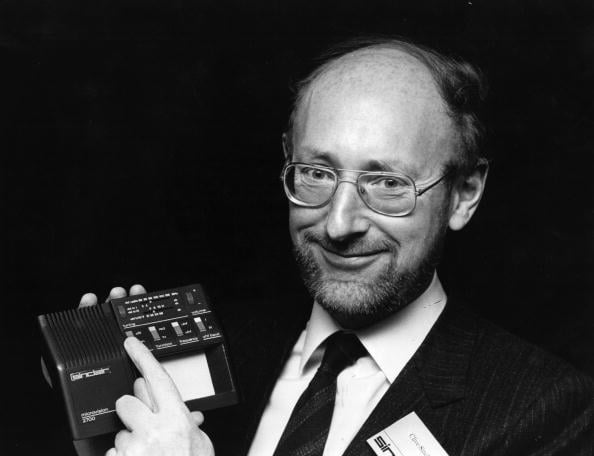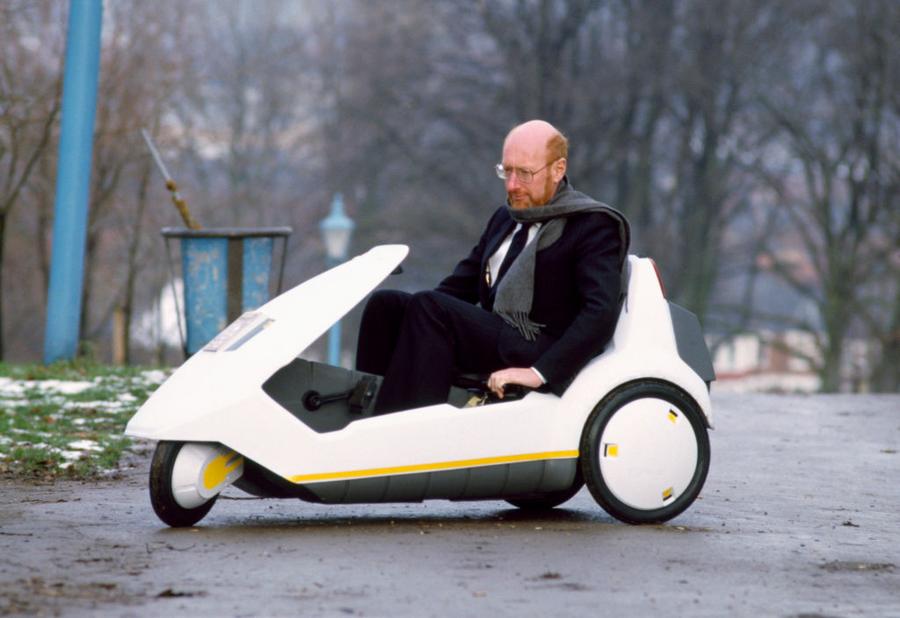What was Clive Sinclair's net worth?
Sir Clive Sinclair was an English entrepreneur and inventor who had a net worth of $100 million. Clive Sinclair was a pioneering figure in the computing industry. Through his companies Sinclair Radionics and Sinclair Research, he produced the world's first slimline electronic pocket calculator and the UK's first affordable mass-market home computer, among other products. Sinclair later developed personal transport technology, including the C5 electric tricycle and the foldable A-bike. Clive invented the ZX Spectrum home computer in 1980. That invention would radically change the public's perception of computers and would eventually lead to today's mass adoption of technology and gadgets.
Early Life and Education
Clive Sinclair was born on July 30, 1940 in Middlesex, England to Thora and George. Both his father and grandfather were engineers, influencing his own career path. He had two younger siblings named Iain and Fiona. To stay safe during World War II, Sinclair moved with his mother to Devon, where they lived with an aunt. Sinclair attended a number of schools as a youth, including Boxgrove Preparatory School, Highgate School, and St. George's Weybridge.

Getty
Career Beginnings
After leaving school at the age of 18, Sinclair sold miniature electronic kits by mail order. He went on to write multiple electronics handbooks that were released by Bernard's Publishing.
Sinclair Radionics
In the summer of 1961, Sinclair founded Sinclair Radionics. However, unable to come up with capital, he joined United Trade Press and worked as an editor for Instrument Practice magazine for several years. Through UTP, Sinclair gained access to thousands of devices from over 30 manufacturers, and ordered rejected products that he could repair. By the late 1960s and into the 1970s, Sinclair Radionics was producing handheld electronic calculators and small televisions. The Sinclair Executive, introduced in 1972, was the world's first slimline electronic pocket calculator.
In 1975, Sinclair introduced the electronic Black Watch wristwatch, which proved to be a failure due to its inaccurate time-telling and poor battery life. As a result, Sinclair Radionics experienced its first financial loss. Sinclair attempted to get funding by selling 43% of the company to the National Enterprise Board, but it was too little too late, and by the end of the decade he left the company. Sinclair was given a golden handshake as he made off with around £10,000.
Science of Cambridge and Sinclair Research
During Sinclair's struggles with Radionics in the late 1970s, he had his former employee Christopher Curry establish a backup company called Science of Cambridge. By the time Sinclair had left Radionics and joined Science of Cambridge, affordable microprocessors were starting to emerge on the market. In 1977, Science of Cambridge introduced the MK14 computer kit. Sinclair subsequently decided to develop an affordable personal computer, resulting in the Sinclair ZX80 in early 1980. Sold for under £100, the ZX80 was the UK's first affordable mass-market home computer. Soon, Science of Cambridge was renamed Sinclair Computers, and then Sinclair Research. The company went on to launch the ZX81 in 1981, and the influential, best-selling ZX Spectrum in 1982. At the end of the latter year, Sinclair Research established a joint venture with Timex to bring Sinclair's computers to North America.
The burgeoning computing market in the early 1980s made Sinclair Research incredibly profitable. In 1982, the company had a pre-tax profit of £9.2 million on a turnover of £27.6 million. With his funds, Sinclair converted the Barker & Wadsworth mineral water bottling factory into his company's headquarters. However, in 1983, Sinclair had a misfire with his TV80, a CRT pocket television that was overshadowed by the Sony Watchman. Meanwhile, his ZX Spectrum computer line was becoming less popular as the market for personal computers in the UK was becoming more cautious. By 1985, Sinclair was facing substantial financial difficulties, and in 1986 he sold the majority of his company to the consumer electronics company Amstrad. Sinclair Research subsequently became a business and holding company with holdings in various spinoff companies.

(Photo by David Levenson/Getty Images)
Sinclair Vehicles
Sinclair's other company was Sinclair Vehicles, which he founded in 1983 to develop electric vehicles. However, the company's only product was the Sinclair C5, introduced in early 1985. A one-person electric recumbent tricycle, the C5 was derided for its costliness, toy-like appearance, and lack of safety features, and was a major commercial failure.
Returning to electric vehicles in the 1990s, Sinclair introduced the Zike electric bicycle. Just like the C5, however, it was a commercial flop. Later, in the '00s, Sinclair collaborated with the Hong Kong-based company Daka on a sea scooter and a foldable bike, among other products. In 2010, Sinclair announced the X-1 two-wheel electric vehicle, but it never came to fruition.
Other Activities
Beyond the work he did with his companies, Sinclair was an avid poker player, and appeared in the first three seasons of the Channel 4 television series "Late Night Poker." He also won the first season of the spinoff series "Celebrity Poker Club." Among his other activities, Sinclair ran in several New York City Marathons and served as the chairman of British Mensa from 1980 to 1997.
Personal Life and Death
Sinclair married his first wife, Ann Trevor-Briscoe, in 1962. They had three children, and divorced in 1985. Sinclair wed his second wife, Angie Bowness, in 2010; they divorced in 2017.
On September 16, 2021, Sinclair passed away at the age of 81 from complications of cancer.










 Bengali (BD) ·
Bengali (BD) ·  English (US) ·
English (US) ·